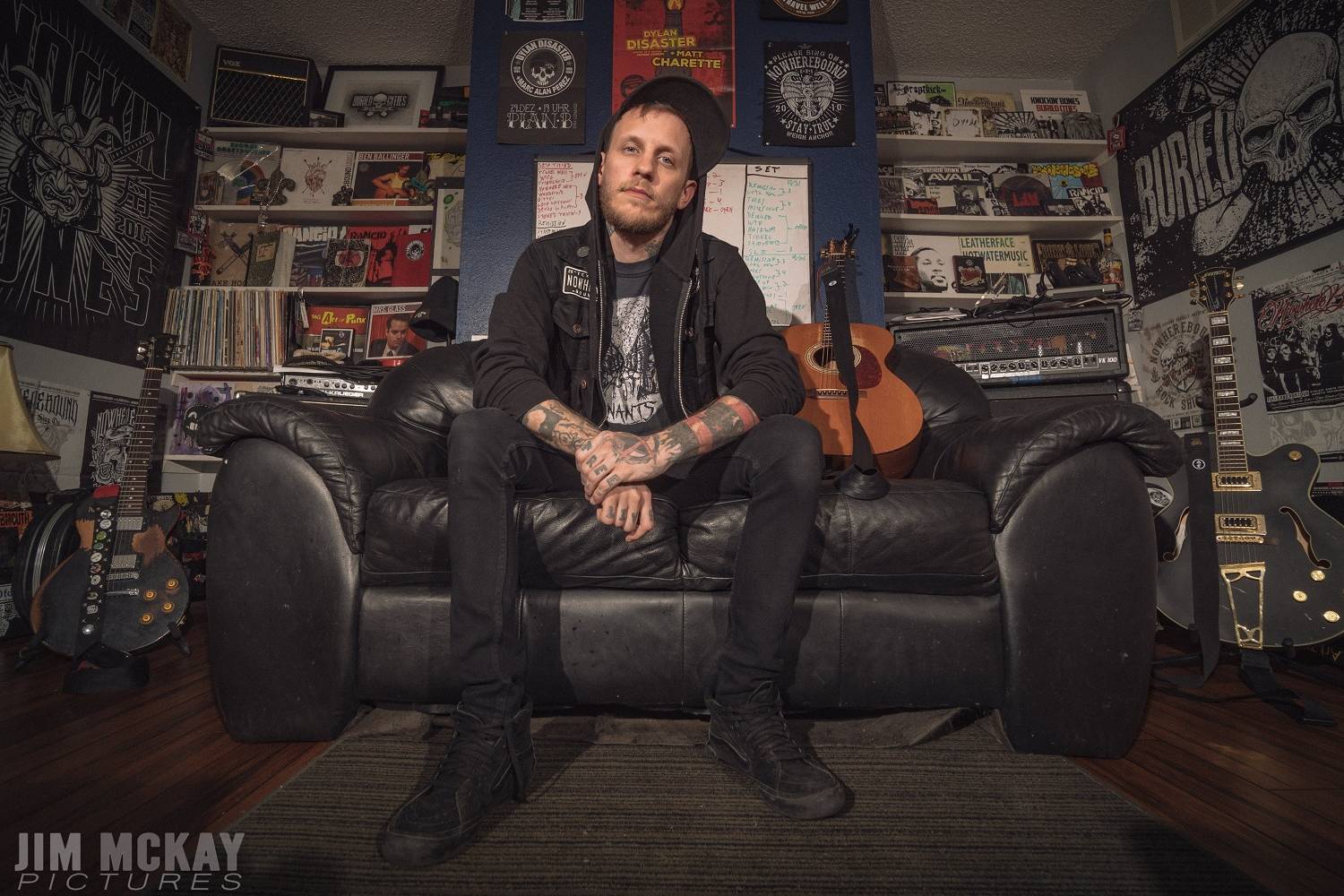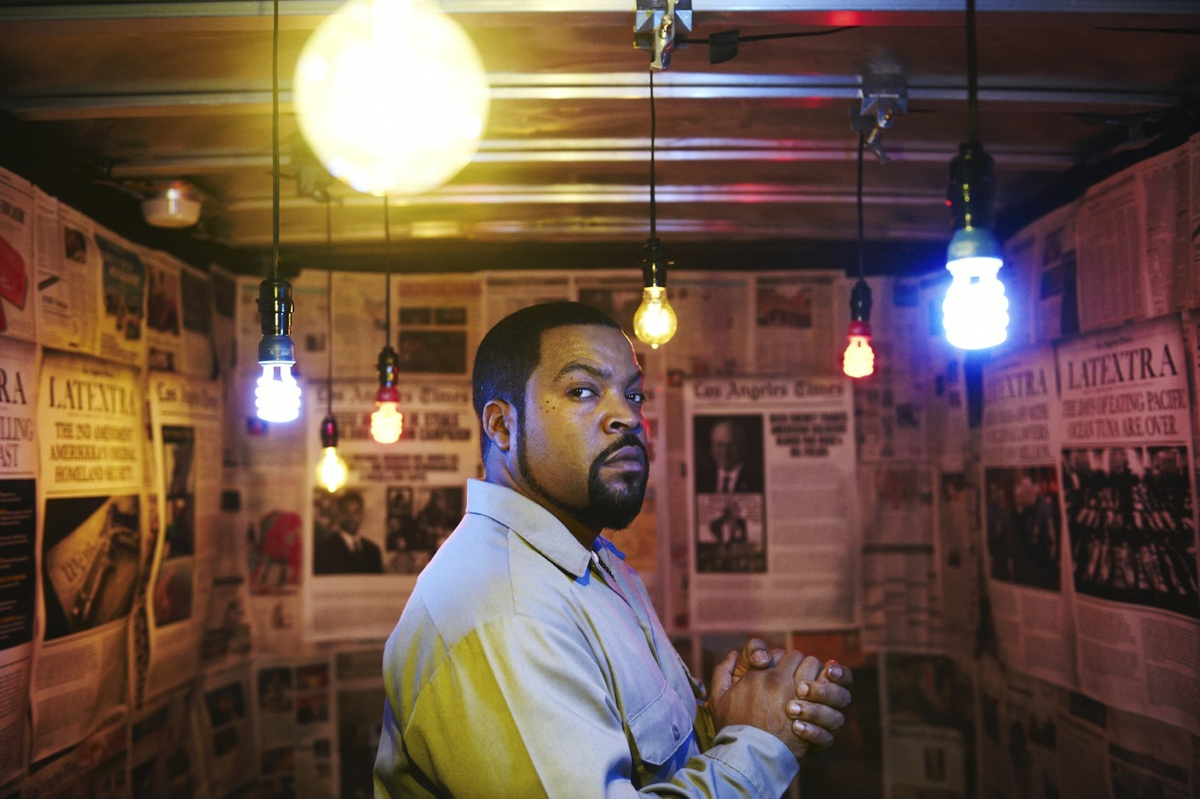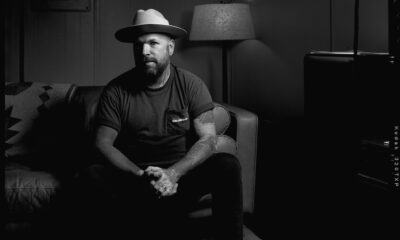Interviews
DYLAN DISASTER Both Discusses and Debuts His Deep Sophomore Solo Recording ‘Remission’ [Album Premiere]
Sounding nothing like what his name might suggest, punky singer/songwriter Dylan Disaster both discusses and debuts his brand-new, sophomore solo recording, Remission.

Sounding nothing like what his name might suggest, Dylan Disaster is debuting his brand new album Remission. Due out tomorrow, Saturday, August 31st, fans can now stream the recording a day early and get insight into the artist, his music, and this, his sophomore solo release. Remission is a pretty “heavy” album and tackles both personal and complex topics. Take the featured single “Milestone,” for example, a song about losing control and falling into a state of panic, one which could turn into a full-blown anxiety attack. If this is something you’ve ever experienced, you’ll know how unbelievably frightening and gruelling it can be, even more so for those dealing with depression.
Remission is a story in song about ups and downs, heartache and recovery. It’s mainly about hitting the lowest low and then finding the strength to fight your way back. It’s exceptionally musically diverse, hitting on the classics of punk rock with “Sun Came Rising,” a more musically diverse ukelele track in “Restless Heart,” and everything in between. There are songs of woe, traces of nostalgia and the hope of recovery. This is the most focused release yet for Disaster, and the territory it covers is very intentional; the epitome of a “wearing your heart on your sleeve” kind of album. It’s a trait that follows the likes of other punk rock solo artists such as Brian Fallon and Dave Hause, both never strangers to immersing themselves into difficult topics and issues.
Before his career as a solo artist, Disaster traversed the United States, playing in various punk rock bands around the country. It wasn’t until he began working on his own, however, that he found the mental clarity he was seeking. Currently stationed in Austin, his typically stripped-down songs still boast the energy that initially attracted him to playing with other punk rock musicians. Disaster is an intelligent artist who puts thought into everything he does. To further investigate just who Dylan Disaster is, and for more detail about Remission, we punted him some interview questions which are included below.
The time has come to stream the entire new album, Remission, so hit play!
Let’s start off with a couple of more immersive questions into who Dylan Disaster is and the man behind the music. You played for years in punk rock bands across the U.S. but eventually decided to go solo. What were some of the primary reasons behind this decision?
Dylan Disaster: “Well, to be honest, playing in a band can be pretty tough, especially when it comes to making group decisions, and if I’m being totally real about it, I like things to go a certain way (some people say it’s the Virgo in me). I often found myself pushing harder than some of my bandmates and then being met with resistance when I made decisions for us; which is understandable, but eventually it just became exhausting and I decided it would make more sense to go it alone so I could be my particular self without that resistance getting in the way. Bottom line, doing the solo thing grants me a lot more freedom, especially when it comes to creativity.”
Which somewhat leads into my next question. You were previously known for being a punk rocker and now your sound is more singer-songwriter focused, but still delivered with high energy. What pushed you towards fairly drastically altering your musical focus?
Disaster: “I guess it happened gradually over the last few years. I still like writing those punk rock songs (obviously) but when I became a lead singer instead of just a guitar player, it made me want to focus more on my lyrics, vocals, and melody rather than my fancy guitar work. Plus, I had been a guitar player since I was 12 so I kind of did that thing already and needed to grow as a musician, so I set my guitar aspirations aside to dedicate more of my time to grow as a vocalist/songwriter which in turn changed the way I wrote songs.”
With songs and videos like this, Dylan Disaster is set for many a “Milestone” ahead:
What’s the real story behind the name Dylan Disaster? It’s a damn cool name, especially for a high-energy rocker, but it doesn’t exactly speak highly of you. Tell us more about the motivation behind the name.
Disaster: “It’s not really that exciting of a story, haha. I was in a band when I was living in Los Angeles whose name had the word disaster in it, so we all got ‘Disaster’ names, mine stuck.”
Your new album Remission is your second solo record. While not a concept record per se, I take it that there is a theme underlying the songs in this collection. Tell us a little more about the thematic qualities that can be found in Remission.
Disaster: “I think the most common theme throughout the record is the ebb and flow factor, the highs and lows. When you go through a long bout of depression that lasts for months (or years), you’re bound to hit highs and lows, and when you’re writing songs during that time period it’s pretty likely that those highs and lows will reflect in those songs. So, each song on the record represents where I was while I was going through this thing, some days I was on high and I wrote songs like “Sun Came Rising” or the title track “Remission” and other days I was low and I wrote songs like “Precautionary Tales of Self Destruction” or “Can’t Keep Up”; but ultimately, all of the songs are tied together by the idea that you just need to weather the storm and embrace the thing you’re going through (no matter what it is) until it has passed, and in the end hopefully you’ll have let it change you for the better.”
As mentioned, Remission drops tomorrow. Check out the artwork:

Where was your mental and spiritual headspace at when beginning work on this album and how did it change through the writing and recording process?
Disaster: “When I first started writing this record (November 2016) I was in a pretty rough state of mind mentally and spiritually. I had a lot going on and a lot of things were coming to a head and it all hit me pretty hard all at once, so as I do, I started writing songs about it. The first songs I wrote were “Tales” and “Can’t Keep Up” and the beginning of “South Long Island,” but a month or two in I wrote the title track and it kind of turned things around for me, it gave me hope and a sense of purpose and the drive to pick myself back up and get back out in the world. And, as I said in the previous question, I had my ups and downs throughout the writing process but in the end, I came out on top, and I think the last song on the record accurately represents that.
Related to my previous question, what were your initial goals when you first became motivated to write a new album and how did those goals change as the process went on? When I first started writing I didn’t really know what I wanted to do, I just wanted to write some songs, then I wrote the title track and it became pretty clear to me that I was writing a new record, which is why I chose it as the album title. As the process continued, my main goal was simply to write a record that truly represented me, and it was important to me that the record was uncompromised.
Like I talked about earlier, being in a band is tough and you need to make compromises so everyone can be happy, which is great and all and that’s how it should be, but I wanted to do something where I didn’t have to make any compromises. And when it was all said and done, my next goal was to put the record in as many peoples hands as possible while doing my best to not put too much pressure on myself or my creativity, I just want to let the thing breathe and be out there so people can hear it and hopefully enjoy it and relate to it.”
View a live, acoustic version of “Milestone” recorded by Bridge City Sessions:
Your music is very personal and reflective of you as an individual and all of your experiences. What is it like wearing your heart on your sleeve to listeners or people who attend your shows? Do you ever feel intimidated by it?
Disaster: “Yes, it can definitely be intimidating, especially playing solo shows. I’ve always said playing solo acoustic shows is a very vulnerable thing, you’re out there all by yourself, no loud drums or feedback to hide behind, so those who are listening are getting a full dose of who you are, which can definitely be scary, especially considering I don’t share a whole lot about myself outside of my music. But as scary as it can be, it’s equally rewarding because it is a very liberating feeling to be so vulnerable. Not to mention how satisfying it feels to have a room full of people sing your songs with you while it’s just you and an acoustic guitar on stage, it’s kind of untouchable.”
Now that Remission is upon us, what are your goals for the next few months as either a musician or an individual?
Disaster: “Musically, I’m going to be pushing this record and playing shows with the full band (Dylan Disaster and The Revelry) which is exciting because I haven’t fronted a band since the last Buried Cities show in 2017 (except for that Bouncing Souls cover set I did with The Hopeless Bromantics). I’ve also started working on my next record, but that’s going to be a while before there is any real progress on that thing. I also have some side projects I’m excited about. Individually, well, that’s the same as what I’m doing musically because that’s just who I am, haha.”
Remission Track Listing:
01. Remission
02. Can’t Keep Up
03. Halfway Home
04. Precautionary Tales of Self Destruction
05. Sun Came Rising
06. Out To Sea
07. Hourglass
08. Long Forgotten Yesterday
09. Milestone
10. Symphony
11. Restless Heart
12. South Long Island
-

 Alternative/Rock1 week ago
Alternative/Rock1 week agoTom Walker Puts on Spellbinding Performance at Leeds O2 Academy
-

 Alternative/Rock1 week ago
Alternative/Rock1 week agoThe Cruel Knives Headline Top Night of British Rock at Manchester’s The Lodge [Photos]
-

 Hip-Hop/Rap4 days ago
Hip-Hop/Rap4 days agoFormz: “I was always the confident kid in school, with a passion for entertaining and being the centre of attention..”
-

 Alternative/Rock20 hours ago
Alternative/Rock20 hours agoThe V13 Fix #013 w/ Six Feet Under, The Days, BlackGold and more
-

 Alternative/Rock1 week ago
Alternative/Rock1 week agoThe V13 Fix #012 w/ Dååth, Unearthly Rites, maybeshewill and more
-

 Hip-Hop/Rap3 days ago
Hip-Hop/Rap3 days agoIce Cube Discusses His Canadian Tour, Growing Up in South Central, and the Need for Feel-Good Music
-

 Interviews5 days ago
Interviews5 days agoKill The Lights Michael ‘Moose’ Thomas Talks Success, International Bandmates and more
-

 Culture2 weeks ago
Culture2 weeks agoRob Lundberg’s “Uncontaminated Sound – The Interviews” EP #67 w/ Joshua Farinella of The Whistleblower













